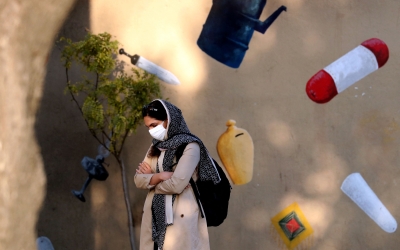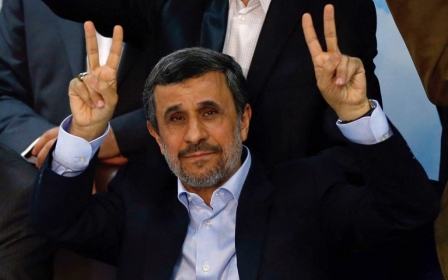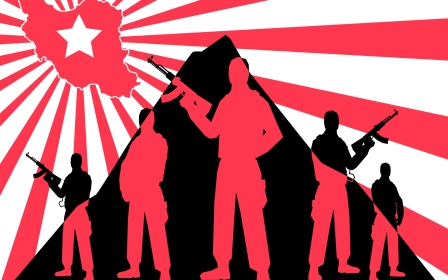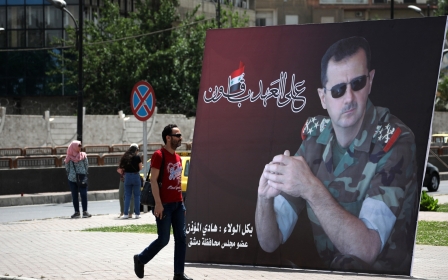Iranian press review: Scandal as budget for police and propaganda covertly boosted
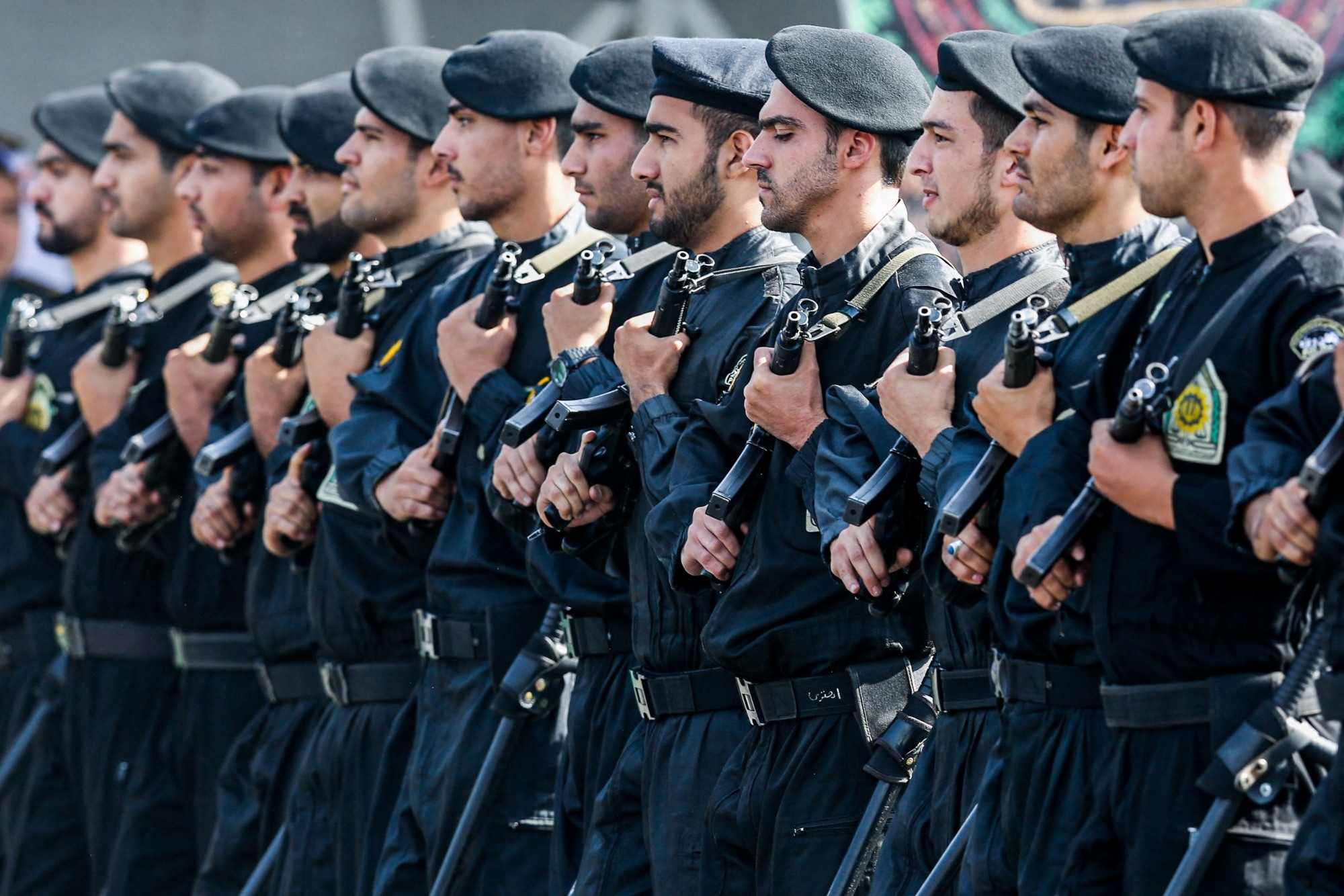
Parliament speaker covertly adds millions to budget bill
Conservative parliament speaker has manipulated figures in Iran's budget bill with the assistance of the budget committee chief in order to increase the finances of institutions linked to the police, the paramilitary forces, and various propaganda offices.
The manipulation was first revealed when 100 lawmakers urged former Islamic Revolutionary Guard Corps (IRGC) commander Qalibaf in a letter to stop making changes to the bill after it was passed by parliament.
On 28 April, Iran's official news agency, IRNA, disclosed the changes made in the budget bill. In a chart, the news agency compared the figures that lawmakers had voted on with the figures sent to President Hassan Rouhani's administration by the parliament speaker Mohammad Bagher Qalibaf.
According to IRNA's chart, the most prominent change was a 21.5 trillion Iranian rial (about $511m) increase in the police budget.
The Basij paramilitary group's budget also saw an increase of 20.4 trillion rials (about $487m).
Iran's Islamic Development Organisation (social media activists aligned with Iran's state TV), the Supreme Council of Islamic Seminaries, and the Friday Prayer Policy Council also enjoyed significant increases in their budget.
Under pressure from the parliament, however, IRNA later removed the chart from its website.
Tehran officials jump vaccine queue
Tehran has become the third Iranian city whose officials have skipped ahead of the Covid-19 vaccine queue and received jabs reserved for street sweepers, Rouydad 24 news agency revealed.
The news agency accessed a list of people introduced by the capital city's sixth district municipality as street sweepers to a health centre, and found that many of them did not work as cleaners.
"The names of officials working at Tehran's District Six municipality were registered on the list of street sweepers who were eligible to receive the first dose of vaccine in Tehran," Rouydad 24 reported. "The names of women are also written on this list, even though no female street sweepers work in Tehran."
According to Rouydad 24, managers, clerks, and family members of officials working in the municipality were among those who received a dose of the vaccine before their appointed turn.
Similar scandals have occurred outside the capital, as mayors and city officials in Ahvaz, Abadan and Ali Abad have also received vaccines prioritised for street sweepers, who have been categorised by the health ministry as a high-risk group.
Iran is currently facing a fourth wave of Covid-19, with its official death toll surpassing 73,500 on Wednesday. The Islamic Republic has yet to slow down the death rate in the worst-hit country in the Middle East, due to a severe vaccine shortage.
Since 19 February, the official beginning of Iran's Covid-19 vaccination drive, only 1.1 million doses of the vaccine have been administered to the country's 83 million people.
Candidate disqualification fuels anger
A ban by hardline institutions on reformist and moderate candidates seeking to run in city and village councils elections has sparked anger among politicians and activists.
Local elections will take place simultaneously with the country's presidential elections on 18 June, as election supervisory committees led by hardline figures are responsible for vetting candidates.
In big cities such as Tehran and Isfahan, the supervisory committees have disqualified most current members of the city councils whose political views are close to moderate president Rouhani, local media reported.
In Tehran, only two of the 12 sitting members of the council who registered for the next elections were qualified. In Isfahan, Iran's third-biggest city, all 11 reformist council members have been banned from running for re-election.
Abbas Ahmad Akhoundi, a reformist politician and Rouhani's former minister of roads and urban developments, rigorously denounced the disqualifications and urged Rouhani to resist the conservative pressure.
"Local democracy is the mother of national democracy," he wrote in an open letter to Rouhani. "If this democracy comes under attack in such a way, national democracy will be damaged more easily. Do not let people lose hope in democracy. Please perform your historical and legal responsibilities."
Baha’i pressured to bury dead at site of mass grave
Iranian intelligence services and the IRGC have reportedly forced members of the persecuted Baha'i faith to bury their dead in a section of the Khavaran cemetery near Tehran believed to be the site of a mass grave of leftist political prisoners.
In recent days, Iranian followers of the Baha'i faith have informed Amnesty International that they were banned from burying their loved ones in the nearby Baha'i cemetery.
Meanwhile, the family members of leftist political prisoners who were executed in 1988 said that fresh graves were dug in the place of the mass graves believed to contain the remains of their relatives. Many of the executed prisoners had been arrested immediately after the 1979 revolution and were about to be released from prison after serving long sentences.
Amnesty International condemned the pressures on the Baha'i people in Iran and the new move by the authorities to destroy the mass graves.
"As well as causing further pain and anguish to the already persecuted Baha'i minority by depriving them of their rights to give their loves ones a dignified burial in line with their religious beliefs, Iran's authorities are wilfully destroying a crime scene," said Diana Eltahawy, Amnesty International's deputy director for the Middle East and North Africa.
*Iranian press review is a digest of reports that are not independently verified as accurate by Middle East Eye.
Middle East Eye propose une couverture et une analyse indépendantes et incomparables du Moyen-Orient, de l’Afrique du Nord et d’autres régions du monde. Pour en savoir plus sur la reprise de ce contenu et les frais qui s’appliquent, veuillez remplir ce formulaire [en anglais]. Pour en savoir plus sur MEE, cliquez ici [en anglais].


